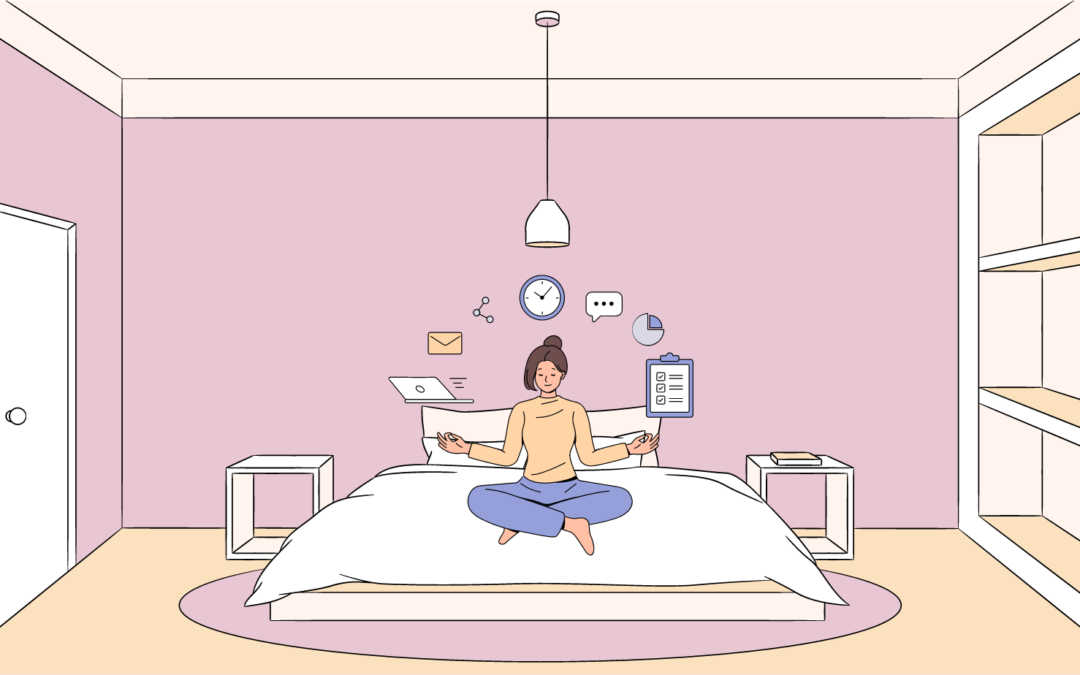Living with Attention Deficit Hyperactivity Disorder (ADHD) as an adult can be challenging. From managing daily tasks to maintaining relationships and professional responsibilities, adults with ADHD often face unique hurdles. This blog aims to provide practical strategies for time management and organization, offering a lifeline to those looking to regain control over their lives and insights to ADHD therapy for adults. Whether you’re newly diagnosed or have been managing ADHD for years, these insights can make a real difference.
The Importance of Time Management and Organization for Adults with ADHD
Effective time management and organization are crucial for adults with ADHD. Poor time management can lead to missed deadlines, forgotten appointments, and a general sense of being overwhelmed. This can exacerbate the symptoms of ADHD, creating a vicious cycle of stress and anxiety. On the flip side, mastering these skills can improve your productivity, reduce stress, and enhance your overall quality of life. Sometimes this can be difficult to do on your own. Reaching out to a professional and starting ADHD therapy for adults can be a good first start.
Practical Strategies for Effective Time Management
Breaking Tasks into Manageable Steps
One of the most effective ways to manage time is by breaking tasks into smaller, more manageable steps. This approach makes daunting tasks seem less overwhelming and allows for a sense of accomplishment as you complete each step. For example, instead of writing “Clean the house” on your to-do list, break it down into “Vacuum the living room,” “Dust the shelves,” and “Clean the bathroom.” This not only makes the task more approachable but also provides multiple opportunities to feel a sense of achievement.
Using Tools and Techniques for Organization
There are numerous tools and techniques that can help with organization. Digital tools like task management apps, calendars, and reminder systems can be particularly useful. Apps like Trello, Todoist, and Google Calendar can help you keep track of your tasks and deadlines. Additionally, using physical tools like planners, sticky notes, and whiteboards can provide constant visual reminders of what needs to be done.
Creating Routines and Sticking to Them
Establishing a routine can be incredibly beneficial for managing ADHD symptoms. Consistency helps to create a sense of normalcy and predictability, which can reduce anxiety and improve focus. Try to wake up and go to bed at the same time every day, and schedule regular times for meals, exercise, and relaxation. Once a routine is established, it becomes easier to stick to, reducing the mental load of deciding what to do next.
Adjusting Work and Home Environments for Improved Focus and Productivity
Tips for Setting Up a Conducive Workspace
Your environment plays a significant role in your ability to focus and be productive. Create a workspace that is free from distractions and clutter. Ensure you have all the tools you need within arm’s reach, so you don’t have to interrupt your workflow to find something. Good lighting, a comfortable chair, and a clean desk can make a world of difference.
Managing Distractions in the Digital Age
In today’s digital age, distractions are everywhere. From social media notifications to email alerts, it can be challenging to stay focused. Consider using apps that block distracting websites or set specific times to check your email and social media. Turning off non-essential notifications can also help you stay on track.

The Role of Self-Care and Stress Management in ADHD
Importance of Regular Exercise and Healthy Eating
Self-care plays a crucial role in managing ADHD symptoms. Regular exercise can help improve focus and reduce hyperactivity and impulsivity. It doesn’t have to be strenuous exercise; even a daily walk can be beneficial. Eating a balanced diet rich in fruits, vegetables, and whole grains can also have a positive impact on your mental health and cognitive function.
Techniques for Managing Stress and Anxiety
Stress and anxiety can exacerbate ADHD symptoms, making it even more challenging to manage your time and stay organized. Techniques such as mindfulness, meditation, and deep breathing exercises can help reduce stress levels. These can be broken down in ADHD therapy for adults.Additionally, engaging in hobbies and activities that you enjoy can provide a much-needed break and help you recharge.
Empowerment through Effective Management of Adult ADHD
Encouragement for Seeking Professional Help and Support
Managing ADHD effectively often requires professional help. Therapists and counselors can provide valuable insights and strategies tailored to your specific needs. Don’t hesitate to seek support from professionals who offer ADHD therapy for adults who can guide you through the process of managing your symptoms.
Call to Action for Sharing Personal Experiences
Sharing your experiences and strategies with others can be empowering and provide a sense of community. Whether through support groups or online forums, connecting with others who understand your struggles can offer new perspectives and encouragement.
Conclusion
Living with ADHD as an adult presents unique challenges, but with the right strategies, you can take control of your life. From breaking tasks into manageable steps to creating a conducive workspace and prioritizing self-care, these practical tips can make a significant difference. Remember, seeking professional help and connecting with others can provide additional support on your journey. Take the first step today and transform your life through effective ADHD management. Your path to a more organized, productive, and fulfilling life starts now.
For those looking to explore more about ADHD therapy for adults in Salt Lake City, Utah, don’t hesitate to reach out to local professionals who can offer personalized guidance and support. Together, we can overcome the challenges of ADHD and thrive.

